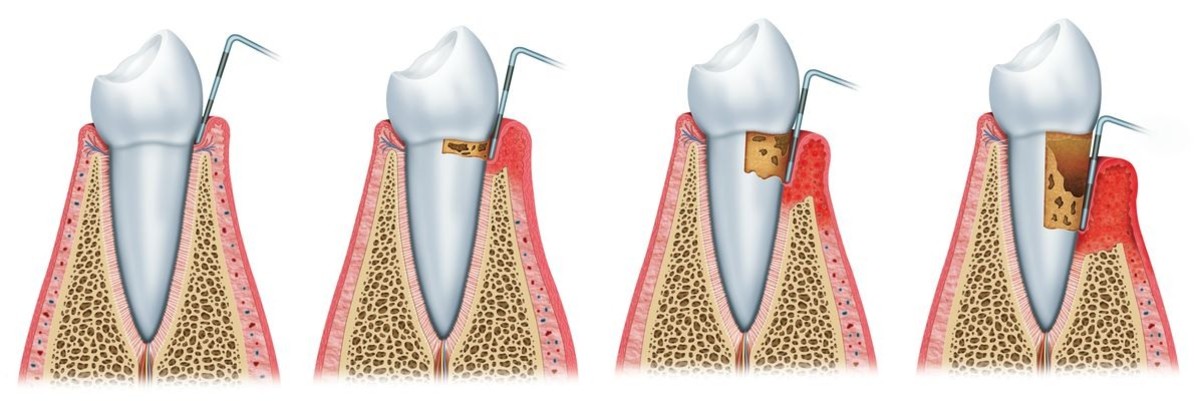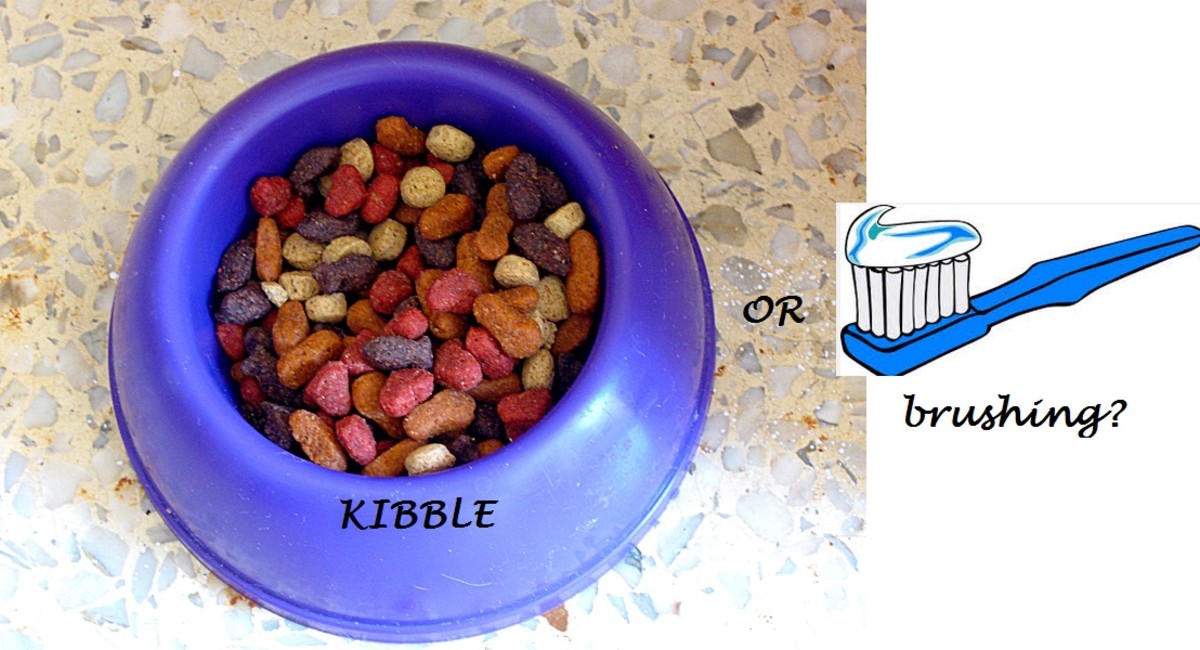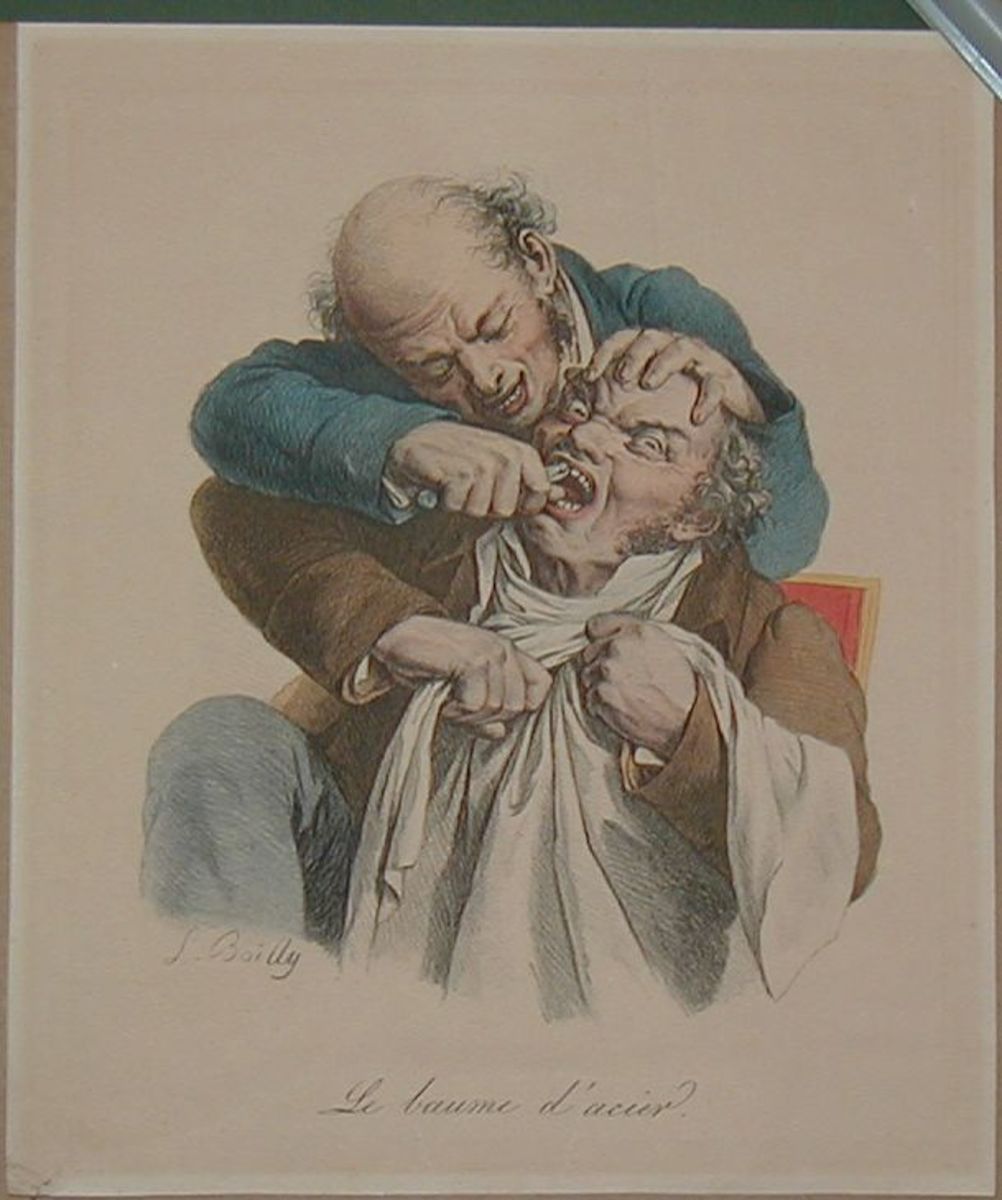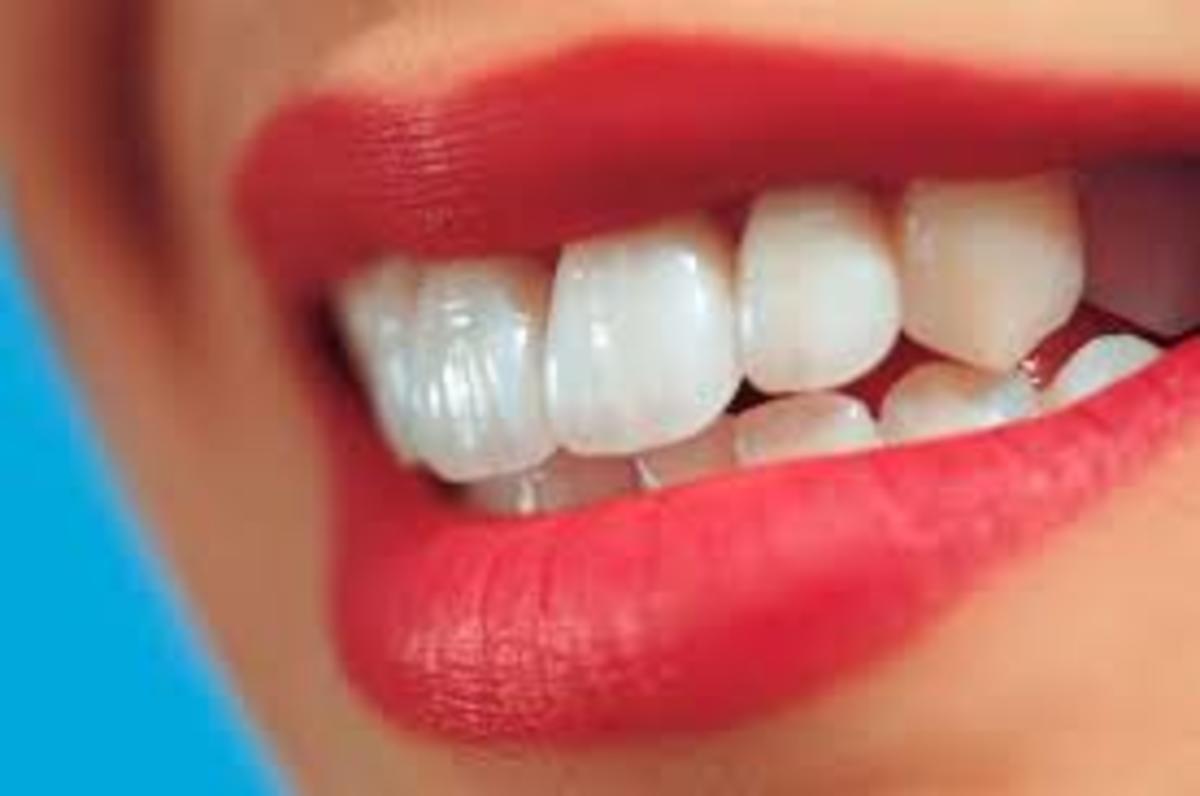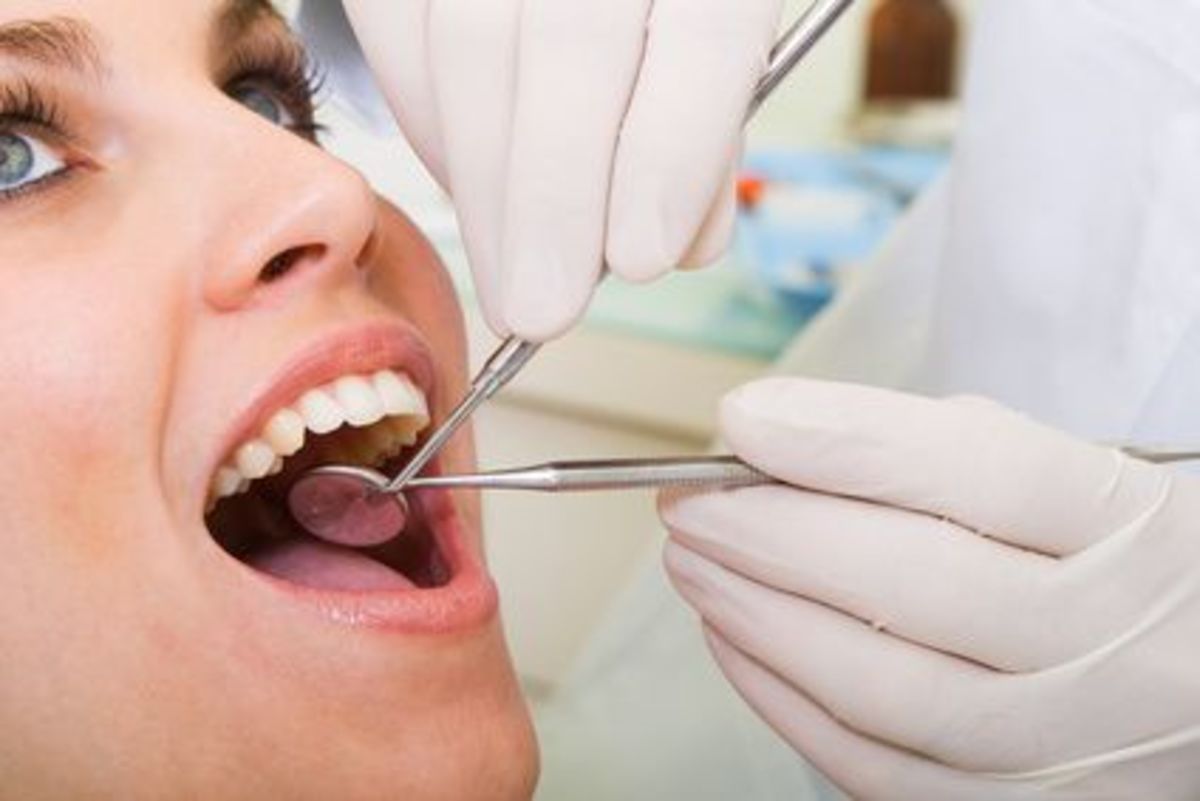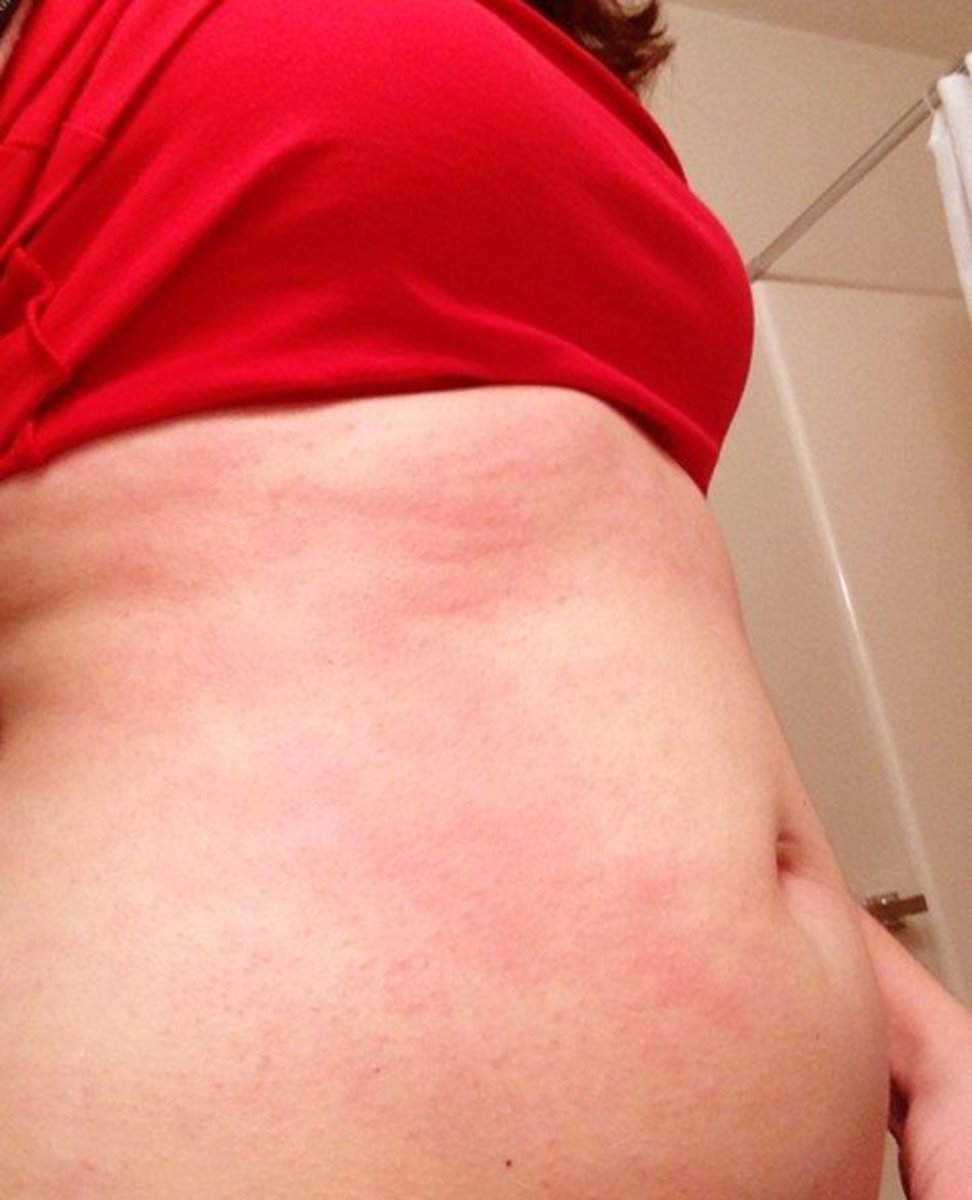Preventing Periodontal Disease
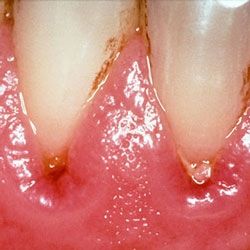
Good Health Can Start With Better Oral Health
I just returned from my dental appointment, and was happy to have yet another good checkup. I visit the dentist twice a year for a cleaning and checkup. My dentist and her staff are great. They always take time to educate their patients about the benefits of good dental health and about adopting good dental habits.
Today, the topic of conversation was preventing periodontal disease. I always leave the dentist office with a "goody bag" filled with a new toothbrush, fluoride rinse, floss, toothpaste, coupons for dental care items, etc. In my "goody bag" they also included some literature about preventing periodontal disease from the American Dental Association.
Gum disease doesn't happen overnight. Correcting it or preventing it doesn't happen overnight either. Preventing gum disease is a result of healthy dental habits. I want to share a few of the things that I have learned today about the link between good oral health and your overall health, the causes of gum disease, how to prevent periodontal disease, and some of the warning signs of gum disease.
(Image Credit to AJC1 - Licensed via Creative Commons with Attribution)

Good Oral Health and the Link
Gum disease is not uncommon in adults, but the degree of gum disease is what can cause health concerns. Your gums are also known as gingivae, and an inflammation of your gums is referred to as gingivitis.
According to the Journal of the American Dental Association, researchers suggest that there may be a link between gum disease and other more severe ailments. These include cardiovascular problems, stroke, bacterial pneumonia, and possibly an increased risk during pregnancy. This concern is due to bacteria from poor gum health entering the blood stream through the gums.
The Mayo Clinic even released an article in May 2013 called "Oral health: A window to your overall health". In this article, they state that your oral health might be more important for your general health than you may realize. Your mouth is teeming with bacteria, most of which is harmless. Without good oral hygiene, this bacteria can reach levels that might lead to oral infections, tooth decay, and gum disease.
This Mayo Clinic Article goes into a lot of detail about specific potential health risks. The do a good job of indicating which health conditions "have been linked to" or "might be linked" to oral health. Either way, I believe that having good oral health is definitely worth focusing on, whether a link to these conditions has been proven or not.
At this point I have to remind you that you should always consult your physician for any health concerns you may have, and that you should consult your dentist for any oral health concerns you might have. Preventing gum disease will be a result of healthy oral habits and by making sure you have regular checkups with your dentist.
(Image Credit to Robert Bejil Photography - Licensed via Creative Commons with Attribution)
Link Between Oral Health and General Health?
So in the section above, I mentioned a lot of the research around the potential link between how your oral health can affect your general health. A lot of the research is loose around this. Some researchers state there is a link, and others state that there may be a link.
What do you think? Is there a link between oral and general health or not?
Do you believe that there is a link between oral health and other health conditions?
Prevention of Periodontal Disease
Prevention starts at home and should be part of your daily routine. You should be brushing your teeth at least twice each day, typically in the morning when you get up and in the evening before you go to bed. I will often brush more often, for example when I get home from work or after a meal. You should also be flossing daily to clean in between your teeth. Using a mouthwash or oral rinse after brushing or flossing helps to top off your at home cleaning effort. Any mouthwash or rinse you use should have the ADA symbol on it, which shows that it meets the American Dental Association's criteria for safety and effectiveness.
Preventing periodontal disease doesn't stop with just good oral hygiene at home though. Even if you brush and floss every day, you may not be able to remove all of the plaque or plaque build up that gathers over time. This is especially true around your hard to reach back teeth and around the gum lines. As plaque builds up, it hardens into a rough porous deposit called tarter. This is where your dental hygienist comes into play. All that scraping she does with that pick is to remove tarter.
So regular checkups with your dentist are very important for good oral health. It is recommended that you see your dentist twice each year, usually every 6 months. During your exam, your dentist will evaluate your gums for periodontal disease. They will check the firmness of your gums and their color. They will even use a small device called a periodontal probe that allows them to measure the space between the teeth and gums to determine if periodontal pockets exist. This space should normally be 3 millimeters or less in healthy gums.
Consider using some of the following dental care devices to prevent periodontal disease.



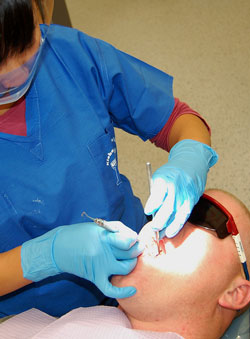
Causes of Gum Disease
If you watch TV and have ever seen a toothpaste commercial, then you have probably heard them talking about how brushing with their product can help to remove plaque and plaque build up. What is plaque anyway? Plaque is a sticky film of bacteria that continually forms on your teeth. Gum disease is usually caused by plaque.
If plaque is not removed by daily brushing of teeth and flossing in between them, your gums can become irritated and inflamed. Irritated gums tissue can then separate from the teeth forming pockets where bacteria can collect. This bacteria continues to irritate the gum tissue, and if left untreated can continue to get worse until the bone and other tooth-supporting tissues are destroyed. This severe stage often leads to tooth loss.
Periodontal disease in its early stage is often called gingivitis. If you have gingivitis then you may notice that your gums are red, swollen, and may tend to bleed easily. This is typically reversible by focusing on good dental hygiene. If left unchecked though, the condition can get worse. You may need to schedule a 'deep cleaning' with your dentist, make sure you are getting regular professional cleanings, and taking better care at home.
(Image Credit to Army Medicine - Licensed via Creative Commons with Attribution)
Visiting the Dentist

When was the last time you visited the dentist for a check up?
Video Explanation of Periodontal Disease
Here is a very well done video that provides an in-depth explanation of periodontal disease. It is provided by Dr. Miles Madison and the talented professional staff at Beverly Hills Periodontal Institute.
It talks about the causes of gum disease, and offers many great pictures showing the differences between health gums and gums that have been affected by periodontal disease. The explain how this disease all begins with the accumulation of plaque, and how correcting the disease starts with a thorough examination.
They show the differences between early periodontal disease and moderate periodontal disease. Gum disease is one of the leading causes of tooth loss. The video shows how a periodontal probe is used to measure the pockets between the tooth and gum to determine if periodontal disease exists. If gum disease is present and detected during your dental visit, your dentist can discuss treatment options and proper home care to prevent further damage and get you on your way to correcting this condition.
Tooth Brushing Poll

How many times each day do you brush your teeth?
The Warning Signs of Gum Disease - What to look out for...
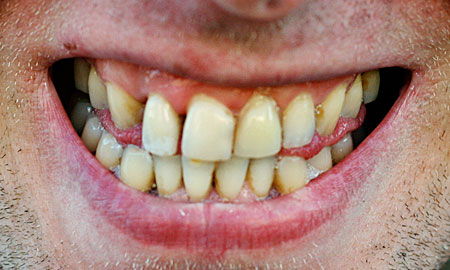
Oftentimes, people with gum disease don't even realize that they have it. This is due to the fact that there is usually no pain associated with it in its early stages. There are some warning signs that you can watch for though. If you experience any of these warning signs, it is recommended that you consult with your dentist about them.
- Bleeding gums when you brush your teeth. You've probably heard the commercials asking if you 'see a little pink in the sink', or blood in the sink after brushing.
- Swollen, red, or tender gums can indicate gum disease.
- If you notice your gums pulling away from your teeth, you should consult with your dentist.
- Persistent bad breath (or halitosis) can be a sign of periodontal disease.
- If pus between the teeth and gums is experienced, you should definitely get in touch with your dentist. This is a sure sign of infection.
- If you start to experience loose or separating teeth, you should be concerned about gum disease.
- A change in the way that your bite feels or how your teeth fit when you clench them together is something you should definitely follow up on.
(Image Credit to Sara Lafleur-Vetter - Licensed via Creative Commons with Attribution)
Flossing Your Teeth - Poll

How often do you floss your teeth?
So what do you think about my lens on Preventing Periodontal Disease?
Have any additional tips, tricks, or comments to add?
I'd love to hear from you!

